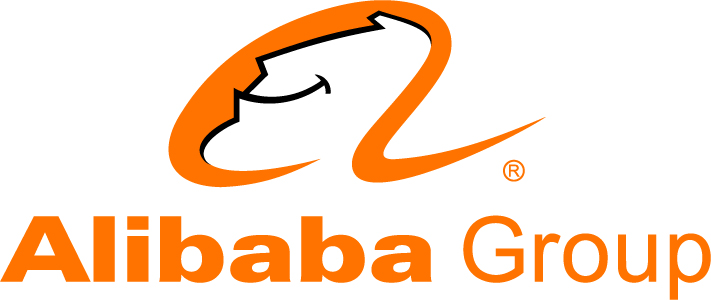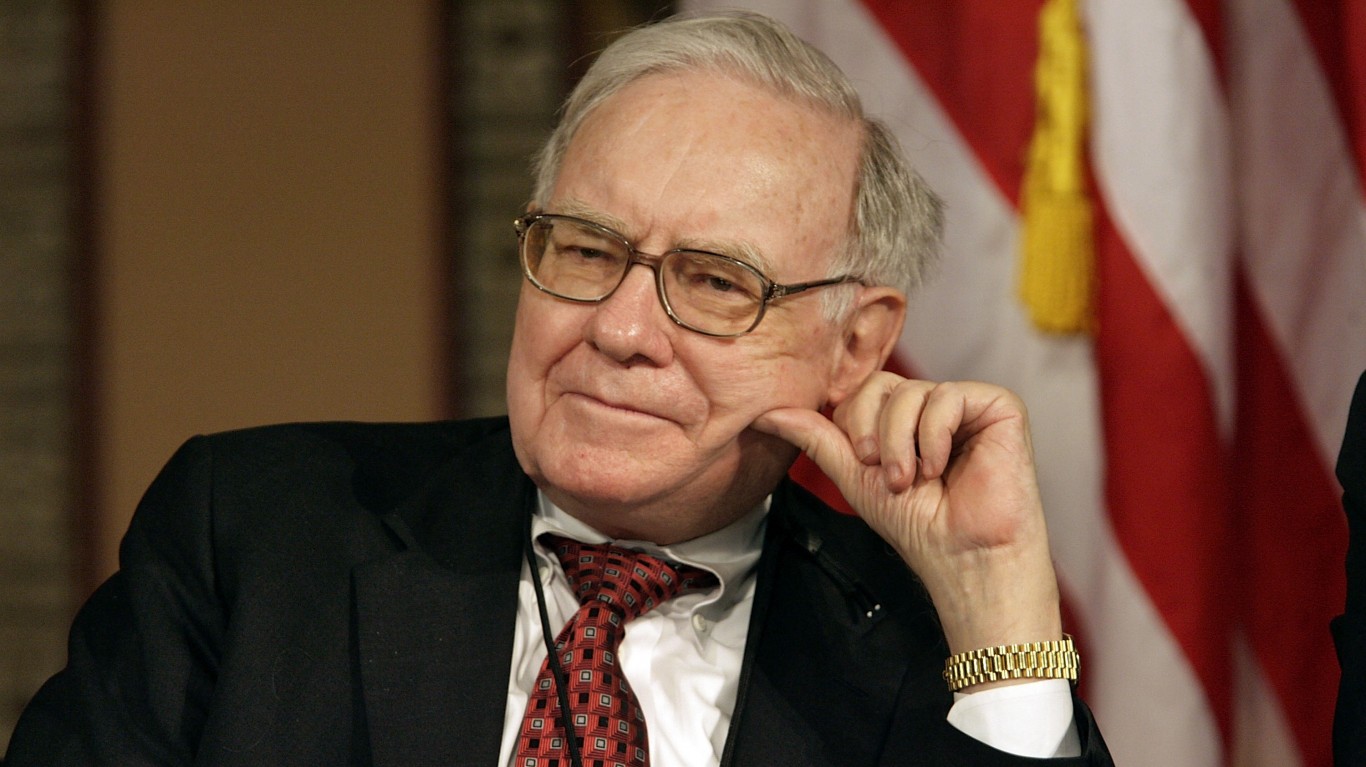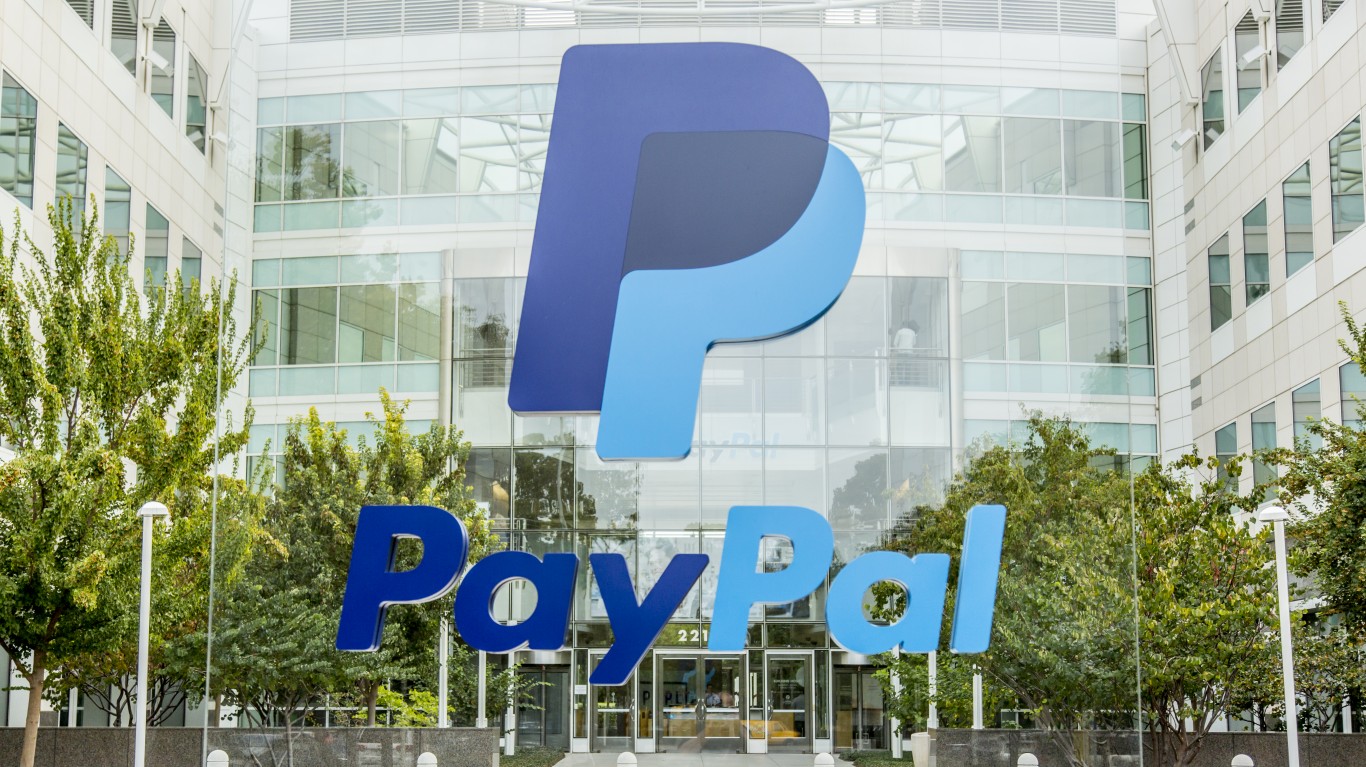Alibaba Group Holding Ltd. is set to come public in the week ahead. There are many things to consider in this offering. It is a great opportunity to own one of the most dominant Web companies in the entire world. 24/7 Wall St. also wants to point out here that the risks that are specific to Alibaba are far from beyond those of just being considered a Chinese company coming public in America, and they are far from normal compared to domestic IPOs as well.
Does more than 40 pages worth of risk factors (see below) sound even remotely close to normal to you?
Alibaba is set to be under further control of Jack Ma and affiliates and parties tied to him. The company has an offshore structure that makes it much harder for shareholders to enforce legal and structural rights. The company is also expected to have a market capitalization rate of roughly $160 billion.
READ ALSO: 9 Analyst Stocks to Buy Under $10 With Massive Upside Potential
As we noted last Friday, Alibaba founder and CEO Jack Ma is selling 12.75 million shares and was shown to be reducing his Alibaba stake to 7.8% from 8.8%. Yahoo! Inc. (NASDAQ: YHOO) is selling 121.74 million shares, reducing its stake from 22.4% to 16.3% — said to be slightly lower in shares being sold than originally expected. The other major shareholder is Japan’s SoftBank, which owns 797.74 million shares (34.1%) and is selling none of them.
Alibaba will have 2,465,005,966 ordinary shares outstanding after this offering (versus 2,341,929,035 ordinary shares outstanding immediately prior to this offering). The company showed in the filing that the number of ADSs outstanding immediately after this offering would be 320,106,100 (or 368,122,000 ADSs if the underwriters exercise in full their option to purchase additional ADSs), not including 128,417,070 of its ordinary shares, representing 5.2% of the outstanding ordinary shares immediately after this offering, that will not be subject to lock-up agreements and may be freely converted into ADSs from time to time.
The labeled “Risk Factors” section of the latest S-1/A filing made other such sections in questionable IPOs look short and conservative. This Risk Factors section is close to 44 pages, if you back out what would be a short final page. We thought that Facebook had a long list of IPO disclosures under its Risk Factors section, but that was “only” 22 pages. Alibaba has twice that much.
24/7 Wall St. has included the seven other specific bullet points located in the risk factors that we have an issue with. The points have been highlighted in bold and has been handled as if they are a quote (taken verbatim from company’s view) from the SEC filing.
READ ALSO: Merrill Lynch Changes Ratings on Key Oil Giants
Risks Under Cayman Corporate Structure
You may face difficulties in protecting your interests, and your ability to protect your rights through the U.S. federal courts may be limited because we are incorporated under Cayman Islands law, we conduct substantially all of our operations in China and most of our directors and all of our executive officers reside outside the United States. The company further said,
We are incorporated in the Cayman Islands and conduct substantially all of our operations in China through our wholly-foreign owned enterprises and the variable interest entities. Most of our directors and all of our executive officers reside outside the United States and a substantial portion of their assets are located outside of the United States. As a result, it may be difficult or impossible for you to bring an action against us or against these individuals in the Cayman Islands or in China in the event that you believe that your rights have been infringed under the securities laws of the United States or otherwise.
Difficulty In Monetizing Mobile
If as we experience increased use of mobile devices for mobile commerce we are unable to monetize that increased use, our business may not grow or could decline, and our revenues and net income would be materially reduced. For instance, to date we have chosen not to display as many marketing impressions on our mobile apps as compared to on our personal computer-based websites. Although we do not believe the increasing use of mobile devices to conduct commerce has had an adverse effect on our business, our rapid overall growth may make less apparent any adverse effects of this trend on our near-term financial performance. We expect mobile GMV as a percentage of total GMV will grow and that our monetization rates for mobile interfaces in the near term will be lower than those we have achieved from websites because to date our focus has not been on maximizing mobile monetization and we have only recently begun to increasingly monetize mobile activity. Going forward we believe our financial results will become increasingly dependent on our ability to monetize the use of mobile devices to access our marketplaces. We expect this trend will have a greater effect on our business to the extent that shopping on mobile devices displaces transactions that could have occurred on personal computers.
Dependence Upon Alipay, And Alipay Controlled By Jack Ma, Is In A 50 Year Deal
We rely on Alipay to conduct substantially all of the payment processing and escrow services on our marketplaces… We do not control Alipay or its parent entity, Small and Micro Financial Services Company, over which Jack Ma effectively controls a majority of the voting interests. Accordingly, if conflicts arise between us and Alipay or Small and Micro Financial Services Company, including conflicts that could threaten our ability to continue to receive payment services on preferential terms or conflicts relating to commercial opportunities that we or Alipay or Small and Micro Financial Services Company wish to pursue, such conflicts may not be resolved in our favor and could have a negative effect on our ecosystem and materially and adversely affect our business, financial condition, results of operations and prospects. Moreover, conflicts of interest may arise due to Jack Ma’s role as executive chairman of our company and through his voting control over and his economic interest in Small and Micro Financial Services Company, and he may not act to resolve such conflicts in our favor.
Revenue Growth Is Declining, And Should Keep Declining
We primarily derive our revenue from online marketing services, commissions based on transaction value derived from certain of our marketplaces and fees from the sale of memberships on our wholesale marketplaces, and we have experienced significant growth in our revenue. In particular, our revenue grew 72.4% from fiscal year 2012 to fiscal year 2013, 52.1% from fiscal year 2013 to fiscal year 2014 and 46.3% from the three months ended June 30, 2013 to the same period in 2014… In addition, our revenue growth may slow or our revenues may decline for other reasons… In addition, our revenue growth rate will likely decline as our revenue grows to higher levels.
Admitting Pirated, Counterfeit And Illegal Goods
We have received in the past, and we anticipate we will receive in the future, communications alleging that items offered or sold through our online marketplaces by third parties or that we make available through other services, such as our online music platform, infringe third-party copyrights, trademarks and patents or other intellectual property rights. Although we have adopted measures to verify the authenticity of products sold on our marketplaces and minimize potential infringement of third-party intellectual property rights through our intellectual property infringement complaint and take-down procedures, these measures may not always be successful. We have been and may continue to be subject to allegations of civil or criminal liability based on allegedly unlawful activities carried out by third parties through our online marketplaces. We also have been and may continue to be subject to allegations that we were participants in or facilitators of such allegedly unlawful activities.
Control Of The Board Of Directors (Very Important For Control)
The Alibaba Partnership and related voting agreements will limit shareholders’ ability to nominate and elect directors. Immediately after this offering and assuming no overallotment exercise, SoftBank will own approximately 32.4% of the issued and outstanding ordinary shares. The filing said,
Our articles of association, as we expect them to be amended and become effective upon completion of this offering, will have the effect of allowing the Alibaba Partnership to nominate a simple majority of our board of directors. If at any time our board of directors consists of less than a simple majority of directors nominated or appointed by the Alibaba Partnership for any reason, including because a director previously nominated by the Alibaba Partnership ceases to be a member of our board of directors or because the Alibaba Partnership had previously not exercised its right to nominate or appoint a simple majority of our board of directors, the Alibaba Partnership will be entitled (in its sole discretion) to nominate or appoint such number of additional directors to the board as necessary to ensure that the directors nominated or appointed by the Alibaba Partnership comprise a simple majority of our board of directors. In addition, we expect to enter into a voting agreement that will take effect upon completion of this offering, pursuant to which SoftBank, Yahoo, Jack Ma and Joe Tsai will agree to vote their shares in favor of the Alibaba Partnership director nominees at each annual general shareholders meeting so long as SoftBank owns at least 15% of our outstanding ordinary shares. Furthermore, we expect the voting agreement to provide that SoftBank will have the right to nominate one director to our board until SoftBank owns less than 15% of our outstanding ordinary shares and that right will also be reflected in our articles of association that will become effective upon completion of this offering. In addition, pursuant to such voting agreement, Yahoo, Jack Ma and Joe Tsai will agree to vote their shares (including shares for which they have voting power) in favor of the election of the SoftBank director nominee at each annual general shareholders meeting in which the SoftBank nominee stands for election. Moreover, subject to certain exceptions, pursuant to the voting agreement SoftBank and Yahoo will agree to give Jack and Joe a proxy over, with respect to SoftBank, any portion of its shareholdings exceeding 30% of our outstanding shares and, with respect to Yahoo, all of its shareholdings up to a maximum of 121.5 million of our ordinary shares. These proxies will remain in effect until Jack Ma owns less than 1% of our ordinary shares on a fully diluted basis or we materially breach the voting agreement. This governance structure and contractual arrangement will limit your ability to influence corporate matters, including any matters determined at the board level. In addition, the nomination right granted to the Alibaba Partnership will remain in place for the life of the Alibaba Partnership unless our articles of association are amended to provide otherwise by a vote of shareholders representing at least 95% of shares that vote at a shareholders meeting.
Lack Of Lock-Up Expiration On Some Shares
Sales of our ADSs, ordinary shares or other equity securities in the public market after this offering, or the perception that these sales could occur, could cause the market price of our ADSs to decline significantly. Upon completion of this offering, we will have 2,465,005,966 ordinary shares outstanding, including 320,106,100 ordinary shares represented by ADSs, assuming the underwriters do not exercise their option to purchase additional shares, of which 128,417,070 of our ordinary shares, representing 5.2% of our outstanding ordinary shares immediately after this offering, will not be subject to lock-up agreements and may be freely converted into ADSs after this offering from time to time.
READ ALSO: Top UBS Dividend Ruler Stocks Continue to Increase Shareholder Payouts
“The Next NVIDIA” Could Change Your Life
If you missed out on NVIDIA’s historic run, your chance to see life-changing profits from AI isn’t over.
The 24/7 Wall Street Analyst who first called NVIDIA’s AI-fueled rise in 2009 just published a brand-new research report named “The Next NVIDIA.”
Click here to download your FREE copy.
Thank you for reading! Have some feedback for us?
Contact the 24/7 Wall St. editorial team.



